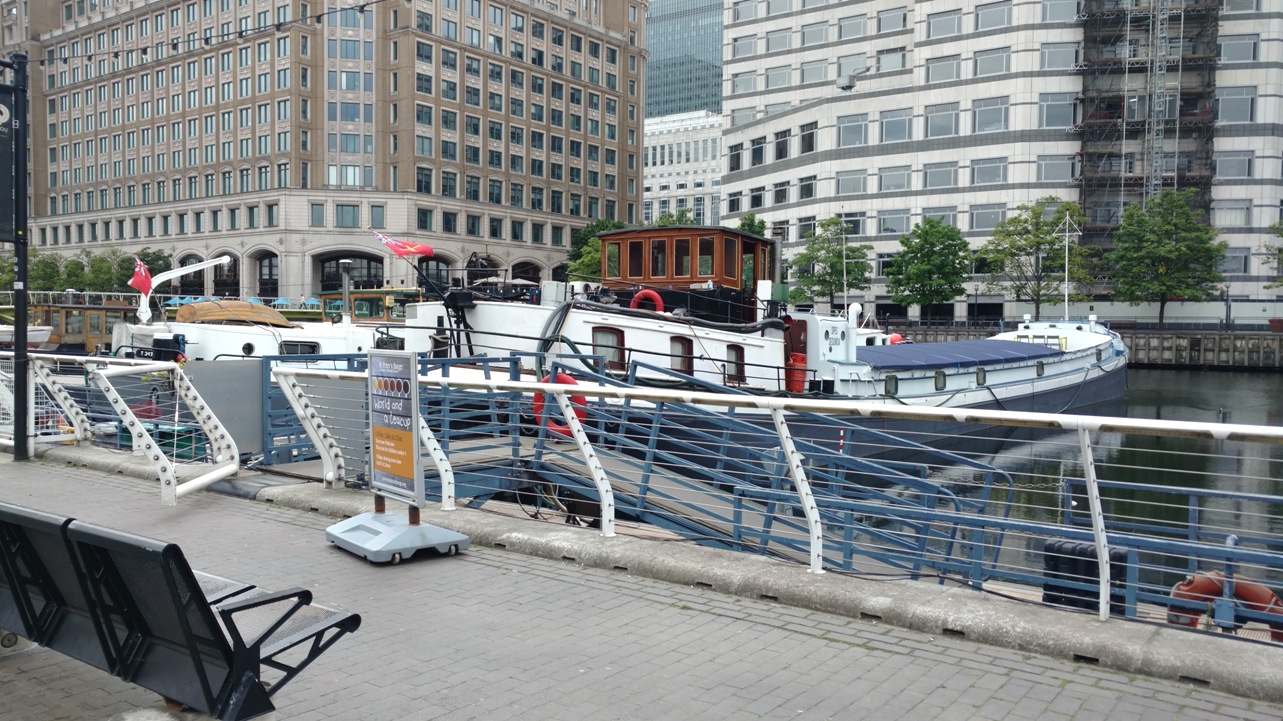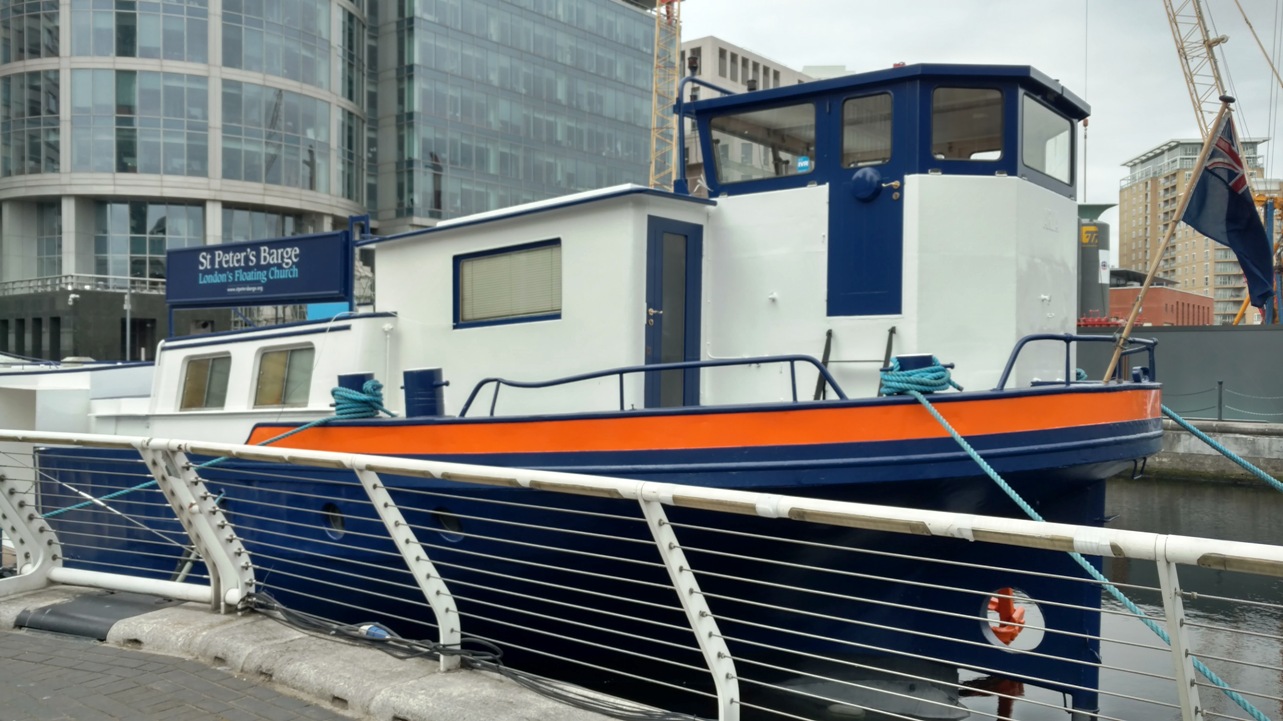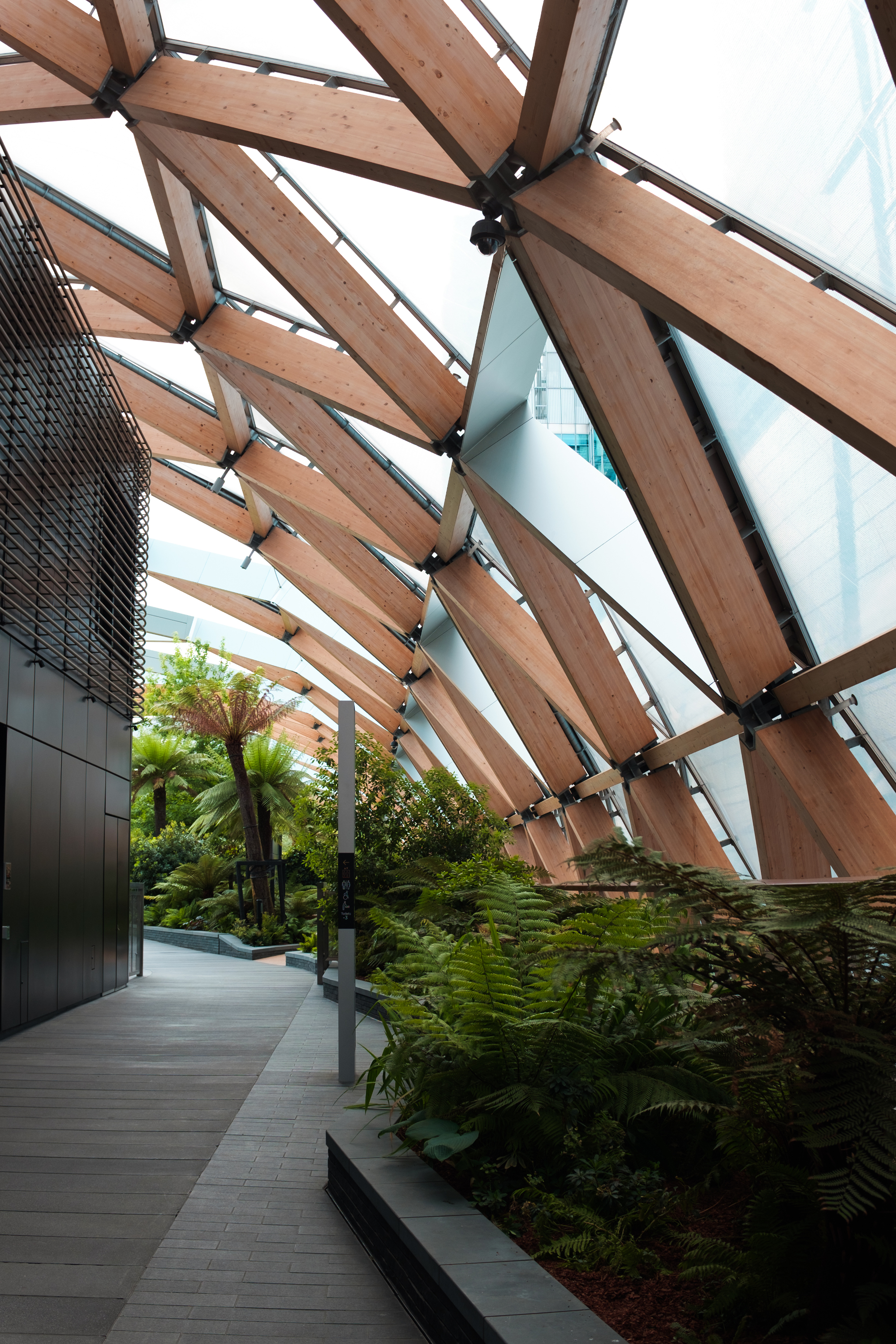Difference between revisions of "Canary Wharf"
From Londonhua WIKI
(→St. Peter's Barge) |
|||
| (6 intermediate revisions by 3 users not shown) | |||
| Line 1: | Line 1: | ||
{{Infobox | {{Infobox | ||
| − | |title = Canary | + | |title = Canary Wharf |
| − | |header1 = Docklands of Canary | + | |header1 = Docklands of Canary Wharf |
|bodystyle = width:25em | |bodystyle = width:25em | ||
|image = [[File:Boats- sm- JR.jpg|x500px]] | |image = [[File:Boats- sm- JR.jpg|x500px]] | ||
| Line 7: | Line 7: | ||
=Overview= | =Overview= | ||
| − | Canary | + | Canary Wharf is a business district on the river Thames. This area used to be docklands before falling into disrepair. Since then the area has experienced a resurgence brought on by the Canary Wharf <ref> About Us. (n.d.). Retrieved May 23, 2017, from http://group.canarywharf.com/about-us/ </ref> group turning it into the popular leisure and retail space that it is today. The area spralls 97 acres with much of the space containing shop, businesses and restaurants and a beautiful view of the Thames and docklands. The Canary Wharf group focused on creating an environment to be welcoming to all and included a large amount of green space, which can be difficult to find in a city setting. Located on this strip is the [[ Museum of London Docklands| Museum of London Docklands]], which today attracts many school groups. |
<br><br> | <br><br> | ||
__TOC__ | __TOC__ | ||
<br> | <br> | ||
= History = | = History = | ||
| + | The London Docklands or the Canary Wharf was a place of significant importance to the growth of and wealth of London's East End. It was the center of imports and exports with many goods coming in from many places around the world. Today this area has become a hub of major corporate companies with lots of shops and clubs. Before becoming an area leisure and relaxation, the Docklands in the 17th century was a place of poverty and crime and it became a target during WWII because it would cut off supplies. Much of the area was in total shambles it wasn't till after the late 1980's that this area got revamped by the Canary Warf Group<ref> Oakley, M. (2017, May 09). Canary Wharf History - London Docklands. Retrieved May 23, 2017, from http://www.eastlondonhistory.co.uk/london-docklands-canary-wharf/ </ref> | ||
<br><br> | <br><br> | ||
=St. Peter's Barge= | =St. Peter's Barge= | ||
| − | St. Peter's Barge is "London's Floating Church". The church is associated with the Church of England but welcomes all people of faith. Their goal is to be a family of Christians and provide positive spiritual support to the community. While they might seem special because the church is a boat, they function as a typical church. | + | St. Peter's Barge is "London's Floating Church". The church is associated with the Church of England but welcomes all people of faith. Their goal is to be a family of Christians and provide positive spiritual support to the community. While they might seem special because the church is a boat, they function as a typical church.<ref> Vision. (2016, September 18). Retrieved May 23, 2017, from http://stpetersbarge.org/vision/ </ref> |
<gallery mode=packed heights=200p> | <gallery mode=packed heights=200p> | ||
Image:St. Peter's Barge- sm- JR.jpg|St. Peter's Barge | Image:St. Peter's Barge- sm- JR.jpg|St. Peter's Barge | ||
| Line 21: | Line 22: | ||
<br><br> | <br><br> | ||
| − | = | + | =Museum of London Docklands= |
| − | |||
<br><br> | <br><br> | ||
| + | |||
| + | =Crossrail Place= | ||
| + | [[File:Crossrail Jacob Dupuis.jpg|350px|frameless|right|Jacob Dupuis 2017]] | ||
| + | Appearing to be floating in the middle of the docklands, Crossrail Place is a large building new building that provides public space, shopping and dinning. This building was built in pairing with the future Canary Wharf station, opening in 2019. The station will service the new Elizabeth Line, and transport riders across London as far as Heathrow airport. The station is located almost 20 meters below the surface of the water, to allow boats to still have access to the docks. The Cross Rail building has a futuristic design, with a roof that lets rain, and air and light in. The purpose of this is to provide maximum open weather conditions for the large and seemingly magic rooftop garden, on the highest level of the building. | ||
| + | |||
=External Links= | =External Links= | ||
If appropriate, add an external links section | If appropriate, add an external links section | ||
| Line 29: | Line 34: | ||
=Image Gallery= | =Image Gallery= | ||
If appropriate, add an image gallery | If appropriate, add an image gallery | ||
| + | <br><br> | ||
| + | |||
| + | =References= | ||
<br><br> | <br><br> | ||
[[Category:Art]] | [[Category:Art]] | ||
[[Category:History]] | [[Category:History]] | ||
Latest revision as of 13:25, 24 May 2017
 | |
| Docklands of Canary Wharf |
|---|
Overview
Canary Wharf is a business district on the river Thames. This area used to be docklands before falling into disrepair. Since then the area has experienced a resurgence brought on by the Canary Wharf [1] group turning it into the popular leisure and retail space that it is today. The area spralls 97 acres with much of the space containing shop, businesses and restaurants and a beautiful view of the Thames and docklands. The Canary Wharf group focused on creating an environment to be welcoming to all and included a large amount of green space, which can be difficult to find in a city setting. Located on this strip is the Museum of London Docklands, which today attracts many school groups.
Contents
History
The London Docklands or the Canary Wharf was a place of significant importance to the growth of and wealth of London's East End. It was the center of imports and exports with many goods coming in from many places around the world. Today this area has become a hub of major corporate companies with lots of shops and clubs. Before becoming an area leisure and relaxation, the Docklands in the 17th century was a place of poverty and crime and it became a target during WWII because it would cut off supplies. Much of the area was in total shambles it wasn't till after the late 1980's that this area got revamped by the Canary Warf Group[2]
St. Peter's Barge
St. Peter's Barge is "London's Floating Church". The church is associated with the Church of England but welcomes all people of faith. Their goal is to be a family of Christians and provide positive spiritual support to the community. While they might seem special because the church is a boat, they function as a typical church.[3]
Museum of London Docklands
Crossrail Place
Appearing to be floating in the middle of the docklands, Crossrail Place is a large building new building that provides public space, shopping and dinning. This building was built in pairing with the future Canary Wharf station, opening in 2019. The station will service the new Elizabeth Line, and transport riders across London as far as Heathrow airport. The station is located almost 20 meters below the surface of the water, to allow boats to still have access to the docks. The Cross Rail building has a futuristic design, with a roof that lets rain, and air and light in. The purpose of this is to provide maximum open weather conditions for the large and seemingly magic rooftop garden, on the highest level of the building.
External Links
If appropriate, add an external links section
Image Gallery
If appropriate, add an image gallery
References
- ↑ About Us. (n.d.). Retrieved May 23, 2017, from http://group.canarywharf.com/about-us/
- ↑ Oakley, M. (2017, May 09). Canary Wharf History - London Docklands. Retrieved May 23, 2017, from http://www.eastlondonhistory.co.uk/london-docklands-canary-wharf/
- ↑ Vision. (2016, September 18). Retrieved May 23, 2017, from http://stpetersbarge.org/vision/

